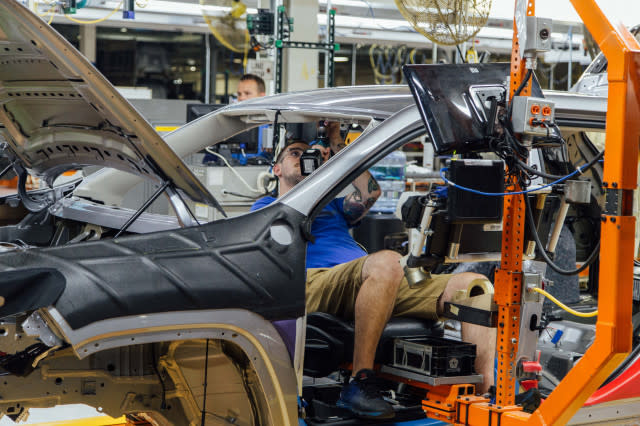Import tariffs on aluminum may not have an immediate effect on car prices in U.S.

Mere hours before temporary exemptions for certain U.S. allies were set to expire, the Trump administration Monday postponed new, wide-reaching import tariffs on aluminum and steel used in new cars.
The temporary tariff exemptions were set to expire at 12:01 a.m. Tuesday. At that time, the government planned to begin charging a 10 percent tariff on imported aluminum and a 25 percent tariff on imported steel.
Higher import duties could increase the cost of new cars in the U.S. Much of the steel and aluminum used to build cars here is imported from Canada.
MORE: If Trump axes NAFTA, new car prices could rise
The White House said in a statement Tuesday that it is "extending negotiations with Canada, Mexico, and the European Union for a final 30 days. In all of these negotiations, the administration is focused on quotas that will restrain imports, prevent transshipment, and protect the national security."
Additionally, the administration said that it is finalizing permanent exemption trade deals with Argentina, Australia, and Brazil. Details about those agreements have not been announced.
Countries without specific exemptions will be subject to the 10 and 25 percent tariffs after June 1, President Trump said in March when he first announced the broad measures. After June 1, the administration says it plans to stop granting exemptions. Countries in Europe have promised retaliation if the tariffs are enforced and said they would tax goods imported from the U.S. including motorcycles, orange juice, and blue jeans.
Aluminum suppliers to carmakers are revving up their investments to push out as much metal as possible while the White House decides whether or not to grant permanent tariff exemption status to Canada, but those import taxes may not necessarily translate to higher new car prices in the short term.
President Donald Trump last week imposed penalties of 10 percent on imported aluminum and 25 percent on imported steel, but not for Canada.
MORE: If Trump axes NAFTA, new car prices could go up
North America’s automotive supply chain relies heavily on raw aluminum from Canadian smelters, reports Automotive News. Because of its advantageous hydropower plants, Canada is a major aluminum producer.
Matt Meenan, senior director of public affairs at the Aluminum Association, said aluminum from Canada is needed because U.S. smelters can't expand fast enough.
"Smelters are hugely expensive, and it takes a long time to build them," Meenan said. "Even if we have all of our U.S. capacity running, it wouldn't be nearly enough to supply demand.”
The Aluminum Association reported that only five aluminum smelters currently operate in the U.S., well down from 18 In 2007.
On the day that Trump announced the Tariffs, the largest U.S. producer of raw aluminum, Century Aluminum, announced a plan to spend $100 million to restart production in Hawesville, Kentucky. The company also has facilities in Mount Holly, South Carolina and Robards, Kentucky,which account for the bulk of America’s smelter capacity.
Other North American companies like Novelis have later indicated that they will invest as much as $400 million to expand plants.
Trump made clear that the effect of the tariffs on vehicle production prices would be contingent on how the U.S. renegotiates NAFTA with Canada and Mexico.
-- by Ruben Porras

 Yahoo Autos
Yahoo Autos 
